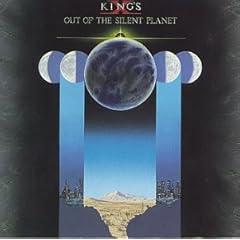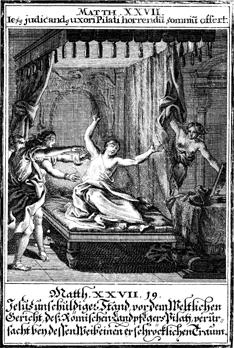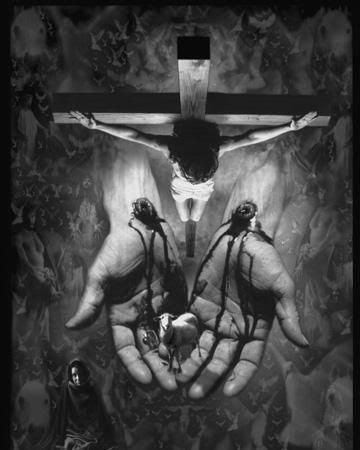
Annunciation
Christopher Orczy
2007
Since today is "The Immaculate Conception of the Virgin Mary", I thought it most fitting to post my piece "Annunciation".
You can listen and download it here.
Annunciation
7 Atmospheres for Luke 1:26-38
1. Mary
Now in the sixth month the angel Gabriel was sent from God unto a city of Galilee,
named Nazareth,
to a virgin betrothed to a man whose name was Joseph,
of the house of David;
and the virgin’s name was Mary.
Within Luke’s Gospel, we are told very little about Mary. She is a virgin, engaged to be married to Joseph, who is of Davidic descent. We aren’t told of her appearance, her expression, or her manner.
2. Appeared
And he came in unto her,
and said,
Hail,
thou that art highly favoured,
the Lord is with thee.
Similar to the previous passage, we are not told anything of Gabriel’s appearance, or the manner of his arrival. Several of the apocryphal writings are more descriptive in their retelling of this passage.
The Nativity of Mary (600 CE) has "he filled the chamber where she was with a great light."
The Martyrdom of Bartholomew (400 CE) has Gabriel “gleaming like the sun”;
and the Questions of Bartholomew (400 CE), Mary describes Gabriel’s face as “incomprehensible.”
3. Troubled
But she was greatly troubled at the saying,
and cast in her mind what manner of salutation this might be.
Mary seems to have no difficulty with Gabriel’s presence, but his words worry her. “The Lord is with thee” is a phrase that would have been familiar to Mary (and Luke’s readers) from the Torah. “Thou that art highly favoured” is what is causing her concern. Mary ponders what has she done (or not done) that would cause God to favour her.
4. Greatness
And the angel said unto her,
Fear not,
Mary:
for thou hast found favour with God.
And behold,
thou shalt conceive in thy womb,
and bring forth a son,
and shalt call his name JESUS.
He shall be great,
and shall be called the Son of the Most High:
and the Lord God shall give unto him the throne of his father David:
and he shall reign over the house of Jacob for ever;
and of his kingdom there shall be no end.
Gabriel recognizes that Mary is troubled, and consoles her. Gabriel’s second discourse contains three elements: a reiteration of Mary’s favoured status; Mary is to conceive a child; and what the child will accomplish in his earthly existence. Once again, Luke uses familiar Jewish phrases to describe who this baby will be.
5. How
And Mary said unto the angel,
How shall this be, seeing I know not a man?
The most important concept of this passage comes from what Mary does not say. She has no difficulty with idea of having a child. Her question concerns the howabouts of the conception. In many ways, Mary’s question and Gabriel’s forthcoming answer are the essential core of Luke’s annunciation, and central to the season of Advent and the Nativity.
6. Cloud
And the angel answered and said unto her,
The Holy Ghost shall come upon thee,
and the power of the Most High shall overshadow thee:
wherefore also that which is to be born shall be called holy,
the Son of God.
And behold,
Elisabeth thy kinswoman,
she also hath conceived a son in her old age:
and this is the sixth month with her that was called barren.
For no word from God shall be void of power.
Luke uses imagery that is reminiscent of the creation passages of Genesis (1:2; 2:6).
And the earth was waste and void;
and darkness was upon the face of the deep:
and the spirit of God moved upon the face of the waters.
but there went up a mist from the earth,
and watered the whole face of the ground.
In the aforementioned apocryphal Questions of Bartholomew, Mary describes the event
I looked up into heaven and there came a cloud of dew and sprinkled me from the head to the feet
7. “be it unto me”
And Mary said,
Behold,
the handmaid of the Lord;
be it unto me according to thy word.
And the angel departed from her.
Mary’s acceptance of what to occur makes her the first Christian. On a larger scale, her agreeing to God’s will reminds us that God can and does act within our lives; and recognizing His presence is not the pursuit of Christians solely, but rather for all mankind.
Within the next week, I will be posting another piece, "Nativity".

























